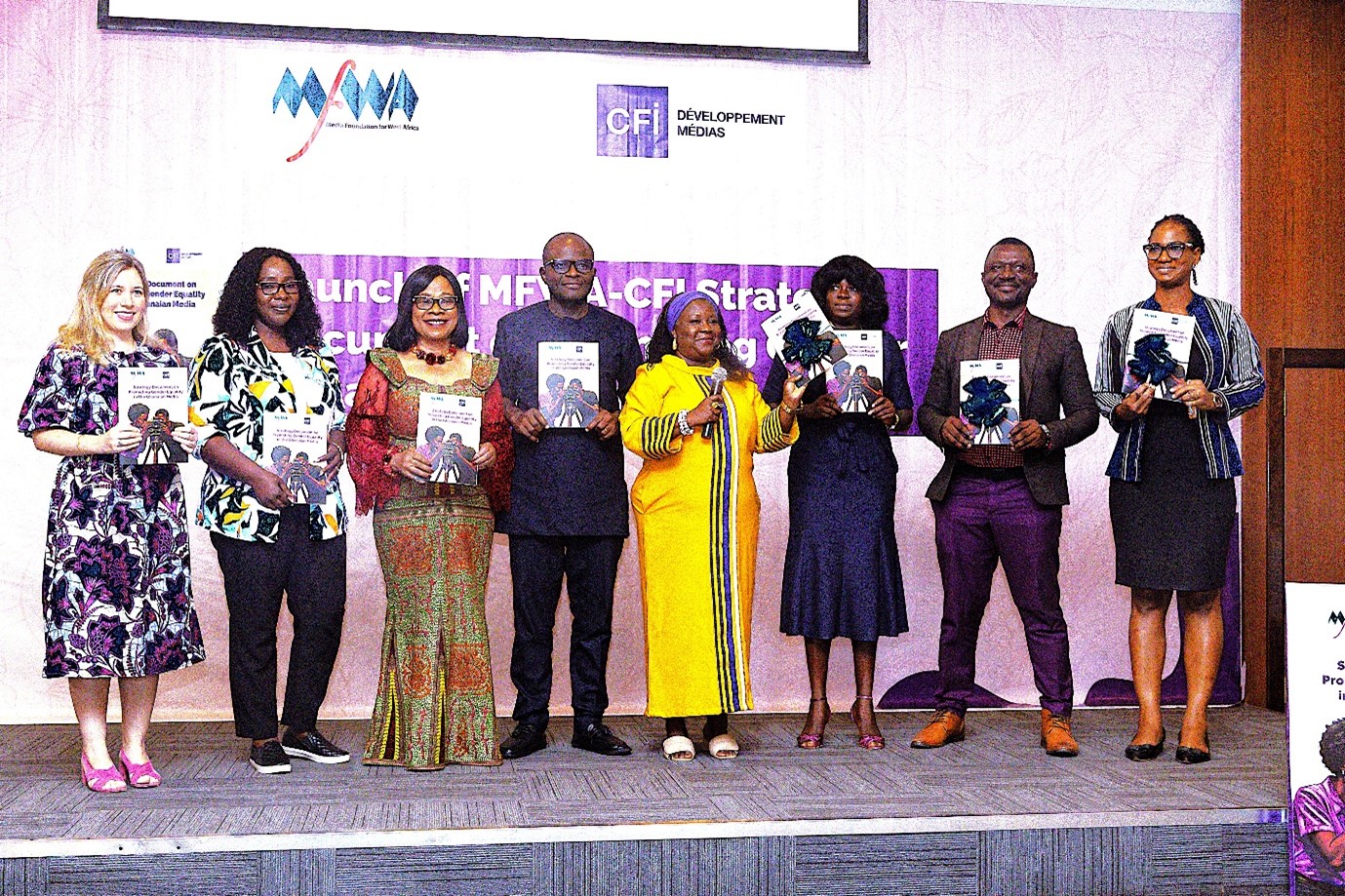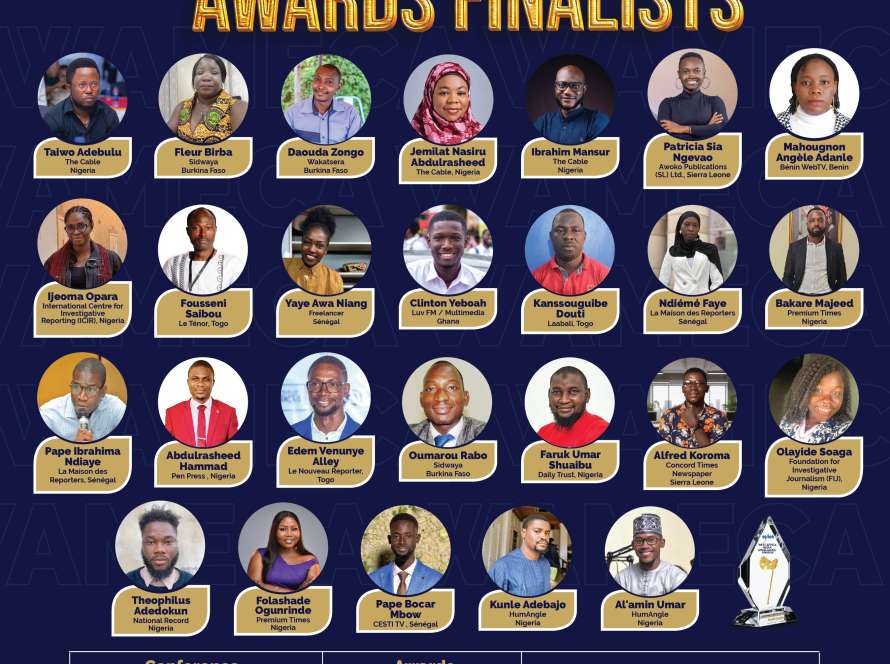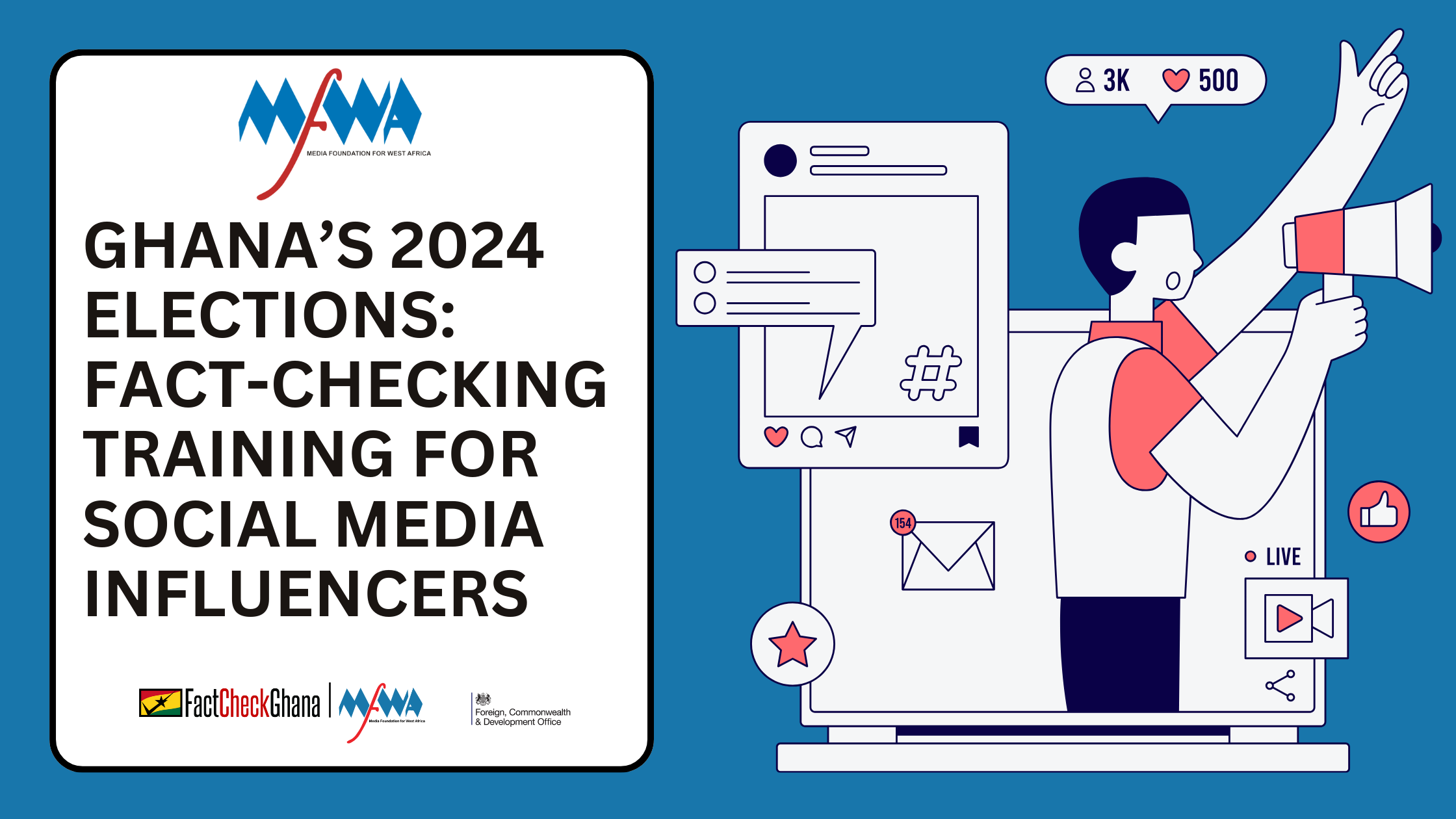The Media Foundation for West Africa (MFWA), in partnership with French media development agency Canal France International (CFI), has launched a strategy document aimed at addressing gender inequalities in the Ghanaian media.
The document, titled MFWA-CFI Strategy on Promoting Gender Equality in the Ghanaian Media, was unveiled on March 27, 2025, in Accra.
The strategy outlines key actions to increase women’s leadership in newsrooms, improve gender balance in media content, enhance gender-sensitive workplace policies, boost advocacy efforts, and foster collaboration across institutions.
The launch event brought together stakeholders from civil society, academia, government, the diplomatic community, media associations, and media professionals from across the country.
Milestone under the Equal Voices project
Mrs. Rosemond Ebi-Adwo Aryeetey, Senior Manager for the MFWA’s Media for Democracy and Good Governance Programme, described the strategy document as a key output of the Equal Voices project—a collaborative initiative between MFWA and CFI, funded by the French government.
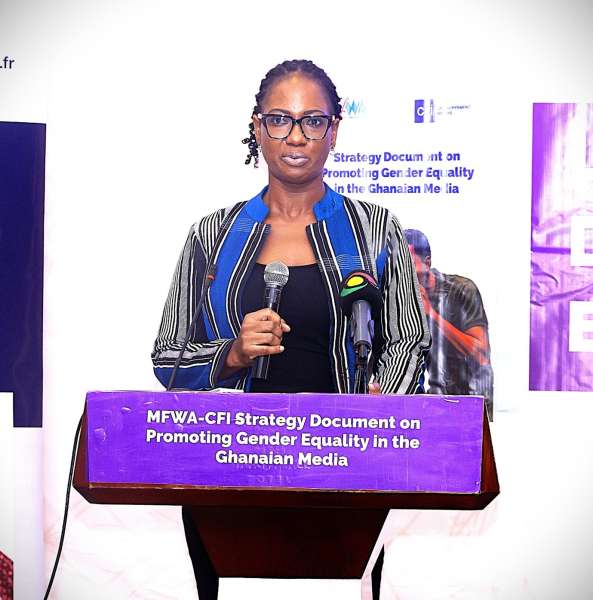
Mrs. Aryeetey expressed appreciation to all the institutions and individuals who contributed to shaping the strategy, and called on stakeholders to work together to implement the recommendations. “Let us coordinate our efforts to achieve gender equality in Ghana’s media,” she urged.
A timely intervention rooted in evidence
Dr. Charity Binka, who served as lead consultant on the Equal Voices project, said the launch was timely, especially as it coincided with the global commemoration of the 30th anniversary of the Beijing Platform for Action.
She pointed out that the media was one of the 12 critical areas of concern identified at the 1995 Beijing conference, with a focus on promoting women and women’s issues in the media. However, she noted that progress has been slow.
“This strategy document is opportune,” Dr. Binka said, “as it provides specific strategies to accelerate progress towards gender parity in the media.”
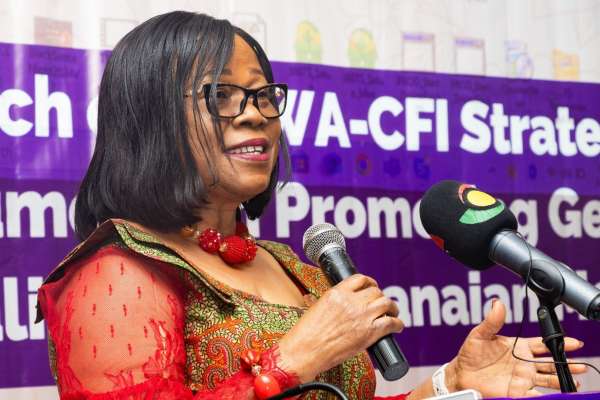
She emphasised that the document is grounded in the Ghanaian context and informed by baseline research, extensive stakeholder consultations, and alignment with international commitments such as the Sustainable Development Goals, particularly Goal 5.
“At its core, the strategy document aims to promote inclusive, equitable and safe environments where women are fairly represented in both leadership and media content, and where institutional culture supports their advancement and safety,” she added.
Gender equality is a priority of the French government
Ms. Marine Hayem, Cooperation Attachée at the French Embassy in Ghana, reaffirmed France’s support for gender equality, stating that it remains a central pillar of the country’s foreign policy.
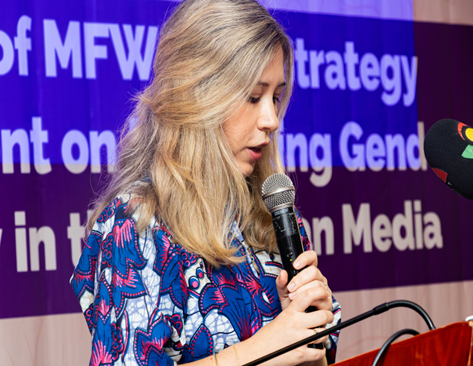
She also noted that what sets the strategy document apart is its practical orientation. “It is not just a theoretical document. It is grounded in realities, and the action plans provide very clear and operational steps with specific timelines and activities, which is really important.”
Ms. Hayem stressed that successful implementation would require all stakeholders to play active roles.
This call was echoed by Ghana’s Minister for Gender, Children and Social Protection, Dr. Agnes Naa Momo Lartey, in a speech delivered on her behalf by Miriam Opoku, the Ministry’s Programmes Director. Dr. Lartey lamented that progress towards gender parity has been too slow, even three decades after the landmark Beijing declaration.
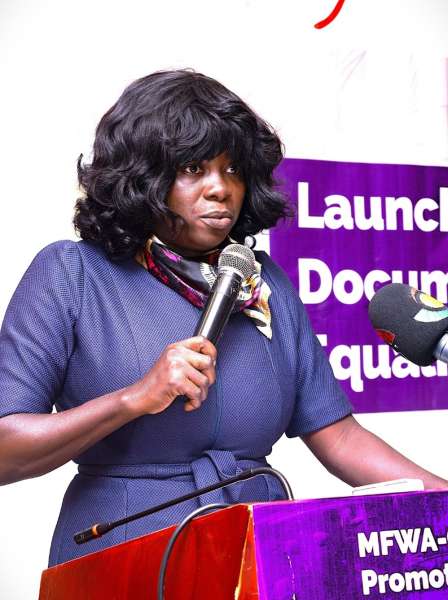
She underscored the role of media in shaping public attitudes and behaviours, stating, “The stories they choose to tell and who gets to tell them profoundly influence our society’s understanding of gender roles and expectations. When women are adequately represented in the media, it is not just about fairness. It is about the accuracy and quality of the information they bring out.”
Progress made, but major gaps remain
In remarks delivered on behalf of the Ghana Journalists Association (GJA), its President, Mr. Albert Dwumfour, also acknowledged the urgent need to address gender disparities.
Citing findings from a study, he said that women make up just 16 percent of news sources and 12 percent of news anchors in Ghana’s media. This imbalance, he argued, perpetuates stereotypes and undermines inclusive storytelling.
“The lack of gender equality in the media has far-reaching consequences. It perpetuates stereotypes and biases, reinforces harmful gender norms, and limits the diversity of perspectives and ideas,” he said through Ms. Rebecca Ekpe, GJA Public Affairs Officer .
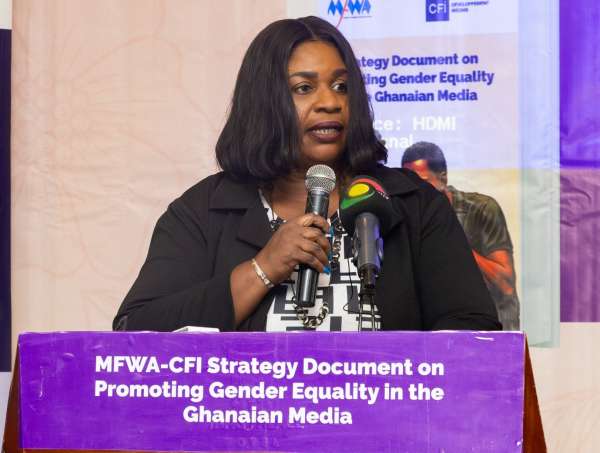
Mr. Dwumfour urged media houses to make deliberate efforts to improve women’s representation in leadership roles, increase coverage of women’s issues, and cite more female sources in news reporting.
Ambitious goal for 2030
The official launch of the strategy document was performed by Prof. Audrey Gadzekpo, communications scholar and consultant, who described the initiative as both timely and necessary.
She referenced the Beijing Platform’s media objectives: to increase women’s participation in media decision-making and to promote balanced portrayals of women in media content, as still relevant today.
“These two objectives set thirty years ago remain as relevant as ever and serve as a basis for the document launched today,” she said. “Looking back at Beijing underscores the necessity of this strategic document.”
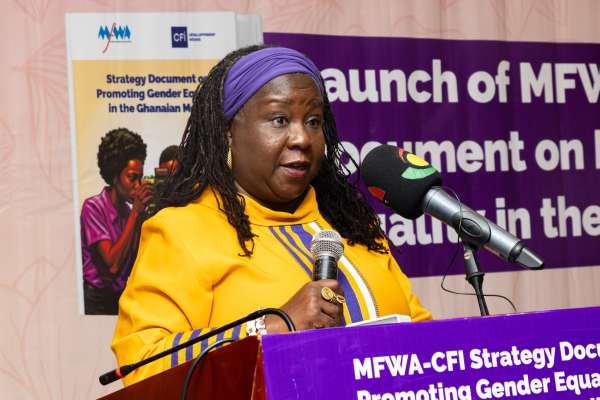
She acknowledged that although the timeline set out in the document to achieve gender parity in the Ghanaian media by 2030 is ambitious, it was doable if all stakeholders commit to implementing the recommendations of the document as well as provisions in the Affirmative Action (Gender Equity) Act 2024.
The launch concluded with a panel discussion featuring beneficiaries of the Equal Voices project, who shared how the initiative had positively impacted their professional growth and confidence.
Background to Equal Voices
The Equal Voices project was informed by a CFI-commissioned study conducted between 2020 and 2021 on gender equality in media and media content in sub-Saharan Africa. The study revealed significant levels of discrimination and violence against women in the media, as well as persistent marginalisation of women in political and economic reporting.
In response, the project provided training on gender-sensitive reporting, empowerment sessions and mentoring for female journalists, and institutional support for media houses to develop inclusive policies and practices.
It also aimed to equip journalists, regardless of gender, to identify and report on gender-based violence, and to foster media environments that promote equality, safety, and dignity.



